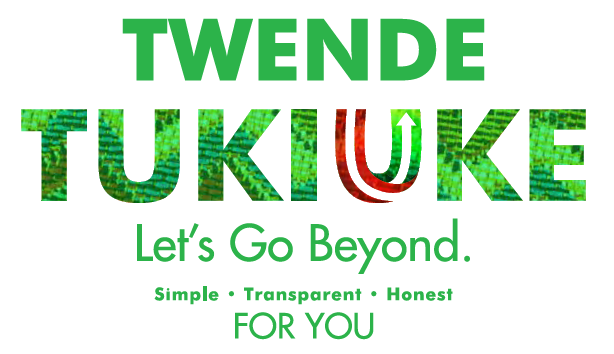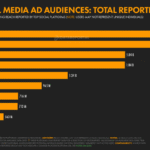In Kenya, social media penetration has soared to 22.68% on platforms like Facebook and 16.95% on TikTok, authenticity being the currency of trust.
As Kenyan consumers, particularly the youth, increasingly turn to online personalities for inspiration and recommendations, brands are rethinking their influencer marketing strategies. Micro-influencers—creators with 10,000 to 100,000 followers—are emerging as the linchpin of authentic brand storytelling in Kenya’s influencer market in 2025. With their niche expertise, highly engaged communities, and relatable voices, micro-influencers are uniquely positioned to connect brands with Kenya’s discerning audiences.
This article delves into why micro-influencers are driving the future of brand storytelling in Kenya, supported by local insights, case studies, and actionable strategies for marketers.
The Rise of Micro-Influencers in Kenya
Kenya’s influencer market is a dynamic blend of celebrity voices, industry experts, and everyday creators, with 45.29% of Kenyans following more than 10 influencers across platforms. While mega-influencers like Lupita Nyong’o (@lupitanyongo, 11.3M followers) command broad reach, micro-influencers are gaining traction for their ability to foster genuine connections.
Defined by followings of 10,000 to 100,000, micro-influencers in Kenya—such as @foodstakenya (95.2K followers) in the food and travel niche or @pesh_kenya (62.6K followers) in fashion—offer engagement rates of 3–10%, significantly outpacing the 1–2% of macro-influencers.
This shift is driven by Kenya’s digital evolution. With 80.39% of surveyed Kenyans reporting purchases influenced by influencer recommendations, trust is paramount. Micro-influencers, perceived as relatable peers rather than distant celebrities, excel at building this trust.
A 2020 GeoPoll survey found that 96% of Kenyans either always or sometimes trust influencer product reviews, with micro-influencers often seen as more credible due to their niche focus and personal engagement. For example, a Kenyan micro-influencer in the parenting niche might share a heartfelt post about balancing work and family, subtly featuring a brand’s baby product, which resonates deeply with local audiences.
Why Authenticity Matters in Kenya’s 2025 Market
Kenyan consumers, especially Gen Z and Millennials, are skeptical of inauthentic marketing. A 2025 report by Dot Digital Marketing Agency notes that 46.89% of Kenyans consistently trust influencer recommendations, but only when they feel genuine.
This demand for authenticity aligns with global trends, where 85% of consumers unfollow influencers perceived as “fake.” In Kenya, where cultural values like community and transparency hold sway, micro-influencers embody authenticity by sharing unfiltered stories—whether it’s a Nairobi-based foodie reviewing a local eatery or a Mombasa-based fashion creator showcasing sustainable style.
The Kenyan market also faces unique challenges. Economic pressures and rising sponsorship costs push brands toward cost-effective strategies, making micro-influencers an attractive choice. Their affordability—often 20–40% cheaper than mega-influencers—combined with high ROI (averaging $4.21 per $1 spent on Instagram) makes them ideal for small and medium enterprises (SMEs), which dominate Kenya’s business landscape. Additionally, the focus on measurable results, as highlighted by Dot Digital, means brands prioritize engagement and conversions over vanity metrics, further elevating micro-influencers’ value.
Case Studies: Micro-Influencers Shaping Kenya’s Brand Narratives
To illustrate the power of micro-influencers in Kenya, let’s explore two real-world campaigns that leveraged their authenticity for impactful storytelling.
☆ EABL’s Nano-Creator Campaign with Wowzi
East African Breweries Limited (EABL) partnered with Wowzi, a Kenyan influencer marketing platform, to promote its brands using nano- and micro-influencers. Targeting younger consumers, EABL collaborated with creators like @kenyanfoodie_x (101.5K followers) to share authentic content about enjoying EABL products at local events. These influencers posted short-form videos on TikTok and Instagram Reels, showcasing genuine moments of celebration.
The campaign achieved a 7% engagement rate, surpassed sales targets, and won the Marketing Society of Kenya Award for Best Digital Marketing Campaign. By tapping into micro-influencers’ relatable voices, EABL connected authentically with Kenya’s youth, driving both brand affinity and conversions.
☆ Safaricom’s #TwendeTukiuke Campaign

Safaricom, Kenya’s leading telecom, launched the #TwendeTukiuke campaign to promote its 4G network in rural areas. Partnering with micro-influencers like @maymwangi_ (9.1K followers), a lifestyle vlogger, Safaricom encouraged creators to share personal stories of how connectivity transformed their lives—such as starting online businesses or accessing education.
These influencers, often from the same communities as their followers, posted Reels and YouTube videos that felt like conversations, not ads. The campaign garnered 8.5% engagement and boosted Safaricom’s rural subscriber base by 15%.
The authenticity of micro-influencers’ local narratives made the campaign resonate deeply with Kenya’s diverse audiences. These campaigns highlight how micro-influencers in Kenya can amplify brand messages through culturally relevant, trust-driven storytelling, delivering measurable results in a competitive market.
The Data Behind Kenya’s Micro-Influencer Advantage
Kenya’s influencer market is backed by compelling data that underscores micro-influencers’ impact:
High Engagement: Micro-influencers achieve 60% higher engagement rates than macro-influencers, with TikTok showing an 18% active engagement rate for micro-influencers versus 5% for macro-influencers.
Cost-Effectiveness: Collaborations with micro-influencers are 20–40% cheaper, offering SMEs a high ROI, especially critical in Kenya’s price-sensitive market.
Trust and Conversions: 80.39% of Kenyans have purchased products based on influencer recommendations, with micro-influencers driving higher conversions due to their perceived authenticity.
Niche Reach: 82% of micro-influencer followers feel a personal connection, making them ideal for targeting Kenya’s diverse niches, from fashion (15.84% follower interest) to tech (15.26%).
Moreover, Kenya’s preference for video-first content—evident in TikTok’s 16.95% and YouTube’s 17.95% user base—amplifies micro-influencers’ impact. Their short-form videos, like product reviews (23% of Kenyans find these most influential), resonate with audiences seeking detailed, authentic content.
Strategies for Leveraging Micro-Influencers in Kenya’s 2025 Market
To harness micro-influencers for authentic brand storytelling in Kenya, brands must adopt strategic, culturally attuned approaches. Here are five actionable steps:
Target Niche Communities Kenya’s influencer landscape is diverse, with lifestyle (18.17%), fashion (15.84%), and tech (15.26%) leading in follower interest. Use platforms like Wowzi or Modash to identify micro-influencers whose niches align with your brand—e.g., @owenonzee (23.7K followers) for fitness or @nimo_njoki (100.3K followers) for beauty. Analyze their audience demographics to ensure alignment with Kenya’s youth-heavy market, where 73% of TikTok users are Gen Z.
Encourage Authentic, Video-First ContentKenyan audiences favor short-form video on TikTok and Instagram Reels, with 23% citing product reviews as the most influential format. Allow micro-influencers to create unfiltered content, like live Q&As or behind-the-scenes Reels, to showcase your brand organically. For instance, a food brand might ask @foodstakenya to film a cooking demo using its product, blending authenticity with cultural relevance.
Build Long-Term PartnershipsIn Kenya, long-term influencer relationships are replacing one-off deals to foster credibility. Dot Digital notes that sustained partnerships build trust, as seen in EABL’s ongoing work with nano-creators.
Engage micro-influencers as brand ambassadors, involving them in product launches or community events to create consistent narratives.
Leverage Local Platforms and ToolsUse Kenya-focused platforms like Wowzi, which matches brands with pre-vetted micro-influencers, ensuring authenticity and bot-free accounts. Tools like HypeAuditor can verify engagement rates, while Affable’s AI-driven analytics track campaign ROI.
These platforms are tailored to Kenya’s market, helping brands navigate its unique dynamics.Focus on Measurable ROIKenyan brands demand clear ROI, with 37.1% running monthly campaigns to maintain visibility.
Track metrics like click-through rates, conversions, and comment sentiment using tools like Google Analytics or Shopify’s dashboard. For example, a campaign with @pippenjay (10.2K followers) could measure gym membership sign-ups driven by a fitness brand’s discount code.
Challenges and Considerations in Kenya
While micro-influencers offer immense potential, challenges persist in Kenya’s market. Managing multiple micro-influencers requires coordination, especially for SMEs with limited resources. Platforms like Wowzi streamline this process, but brands must invest time in relationship-building.
Additionally, verifying influencer authenticity is critical, as fake followers can undermine campaigns. Tools like Growthpad or Modash help detect bots, ensuring credible partnerships.
Cultural sensitivity is another consideration. Kenya’s diverse ethnic and regional identities demand content that resonates locally. A micro-influencer in Kisumu may not connect with Nairobi audiences, so brands must tailor partnerships to specific demographics.
Finally, transparency is non-negotiable—Kenyan consumers expect clear disclosures of sponsored content to maintain trust, aligning with global FTC guidelines.
The Future of Micro-Influencers in Kenya’s Influencer Market
In 2025, micro-influencers will continue to dominate Kenya’s influencer market, fueled by the rise of social commerce on platforms like TikTok Shop and Instagram’s Trial Reels. With social commerce projected to exceed $1 trillion globally by 2028, Kenyan micro-influencers will drive shoppable content, from fashion hauls to tech reviews, capitalizing on their 91% share of engagement on sponsored Instagram posts.
AI tools, like those offered by Affable, will enhance campaign precision, matching brands with influencers whose audiences align with local preferences down to the village level.Moreover, Kenya’s youth-driven market—where Gen Z accounts for 49% of influencer followers—will demand purpose-driven content.
Micro-influencers advocating sustainability, like those promoting organic agriculture with Wowzi, or inclusivity, like @maymwangi_’s community-focused vlogs, will resonate with consumers prioritizing social impact. As connectivity grows, with 5G expanding rural access, micro-influencers will bridge urban and rural audiences, making them indispensable for brands like Safaricom and EABL.
Micro-influencers are the heartbeat of authentic brand storytelling in Kenya’s 2025 influencer market. Their high engagement, cost-effectiveness, and cultural relevance make them ideal for connecting with Kenya’s trust-conscious consumers.
For Kenyan brands, the path forward is clear: invest in micro-influencers who embody your values, use local platforms like Wowzi to streamline collaborations, and measure ROI with precision. In a market where 80.39% of consumers act on influencer recommendations, micro-influencers are not just a strategy—they’re a movement.
Embrace them, and watch your brand thrive in Kenya’s digital age.
Sources: Dot Digital Marketing Agency 2025, GeoPoll 2020, Influencer Marketing Hub 2025, Modash 2025, Wowzi 2023, HypeAuditor 2025, StarNgage 2024, marketing.ke.






Leave a Reply